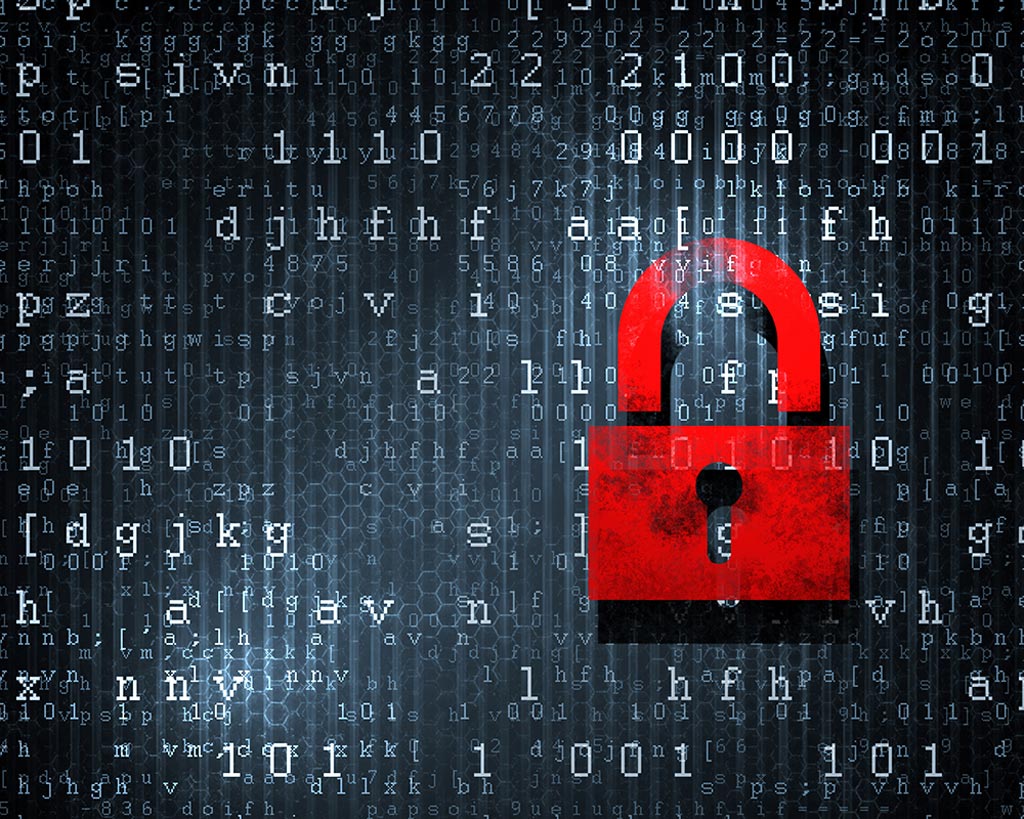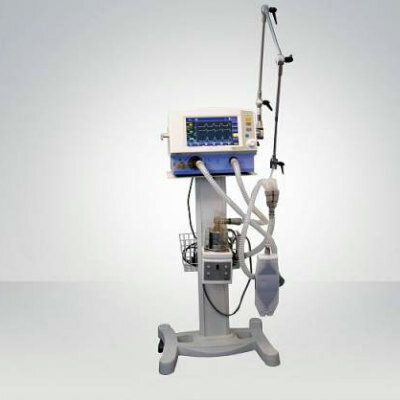Human Heartbeat Could Safeguard Electronic Medical Data
|
By HospiMedica International staff writers Posted on 01 Feb 2017 |

Image: A new study suggests the human heartbeat could be used to protect medical records (Photo courtesy of DepositPhotos).
A new study describes how an electrocardiograph (ECG) could be used as password to access the information encrypted in a patient’s electronic health record (EHR).
Researchers at Binghamton University conducted a study to investigate an innovative psychophysiological approach for secure and trustworthy user authentication via non-volitional components of an ECG. Identifying reproducible, unique features of the ECG, they developed a method to accurately recognize and authenticate people by extracting time-invariant and context-invariant ECG passwords. In essence, the patient's heartbeat is used as the password to access their EHR.
Since an ECG may change due to age, illness, or injury, the researchers are currently working out ways to incorporate those variables. The identification scheme for ECG is a combination of previous work by the researchers that used a person's unique brainprint instead of traditional passwords to access computers and buildings, which was combined with cyber-security approaches. The study was presented at the IEEE Global Communications Conference (GLOBECOM 2016), held during December 2016 in Washington (DC, USA).
“The ECG signal is one of the most important and common physiological parameters collected and analyzed to understand a patient's' health,” said study co-author Zhanpeng Jin, PhD, of the department of electrical and computer engineering. “While ECG signals are collected for clinical diagnosis and transmitted through networks to electronic health records, we strategically reused the ECG signals for the data encryption.”
“The cost and complexity of traditional encryption solutions prevent them being directly applied to telemedicine or mobile healthcare. Those systems are gradually replacing clinic-centered healthcare, and we wanted to find a unique solution to protect sensitive personal health data with something simple, available, and cost-effective,” concluded Dr. Jin. “Through this strategy, the security and privacy can be enhanced while minimum cost will be added.”
Researchers at Binghamton University conducted a study to investigate an innovative psychophysiological approach for secure and trustworthy user authentication via non-volitional components of an ECG. Identifying reproducible, unique features of the ECG, they developed a method to accurately recognize and authenticate people by extracting time-invariant and context-invariant ECG passwords. In essence, the patient's heartbeat is used as the password to access their EHR.
Since an ECG may change due to age, illness, or injury, the researchers are currently working out ways to incorporate those variables. The identification scheme for ECG is a combination of previous work by the researchers that used a person's unique brainprint instead of traditional passwords to access computers and buildings, which was combined with cyber-security approaches. The study was presented at the IEEE Global Communications Conference (GLOBECOM 2016), held during December 2016 in Washington (DC, USA).
“The ECG signal is one of the most important and common physiological parameters collected and analyzed to understand a patient's' health,” said study co-author Zhanpeng Jin, PhD, of the department of electrical and computer engineering. “While ECG signals are collected for clinical diagnosis and transmitted through networks to electronic health records, we strategically reused the ECG signals for the data encryption.”
“The cost and complexity of traditional encryption solutions prevent them being directly applied to telemedicine or mobile healthcare. Those systems are gradually replacing clinic-centered healthcare, and we wanted to find a unique solution to protect sensitive personal health data with something simple, available, and cost-effective,” concluded Dr. Jin. “Through this strategy, the security and privacy can be enhanced while minimum cost will be added.”
Latest Health IT News
- Machine Learning Model Improves Mortality Risk Prediction for Cardiac Surgery Patients
- Strategic Collaboration to Develop and Integrate Generative AI into Healthcare
- AI-Enabled Operating Rooms Solution Helps Hospitals Maximize Utilization and Unlock Capacity
- AI Predicts Pancreatic Cancer Three Years before Diagnosis from Patients’ Medical Records
- First Fully Autonomous Generative AI Personalized Medical Authorizations System Reduces Care Delay
- Electronic Health Records May Be Key to Improving Patient Care, Study Finds
- AI Trained for Specific Vocal Biomarkers Could Accurately Predict Coronary Artery Disease
- First-Ever AI Test for Early Diagnosis of Alzheimer’s to Be Expanded to Diagnosis of Parkinson’s Disease
- New Self-Learning AI-Based Algorithm Reads Electrocardiograms to Spot Unseen Signs of Heart Failure
- Autonomous Robot Performs COVID-19 Nasal Swab Tests

- Statistical Tool Predicts COVID-19 Peaks Worldwide
- Wireless-Controlled Soft Neural Implant Stimulates Brain Cells
- Tiny Polymer Stent Could Treat Pediatric Urethral Strictures
- Human Torso Simulator Helps Design Brace Innovations
- 3D Bioprinting Rebuilds the Human Heart
Channels
Artificial Intelligence
view channel
AI-Powered Algorithm to Revolutionize Detection of Atrial Fibrillation
Atrial fibrillation (AFib), a condition characterized by an irregular and often rapid heart rate, is linked to increased risks of stroke and heart failure. This is because the irregular heartbeat in AFib... Read more
AI Diagnostic Tool Accurately Detects Valvular Disorders Often Missed by Doctors
Doctors generally use stethoscopes to listen for the characteristic lub-dub sounds made by heart valves opening and closing. They also listen for less prominent sounds that indicate problems with these valves.... Read moreCritical Care
view channel
Machine Learning Tool Identifies Rare, Undiagnosed Immune Disorders from Patient EHRs
Patients suffering from rare diseases often endure extensive delays in receiving accurate diagnoses and treatments, which can lead to unnecessary tests, worsening health, psychological strain, and significant... Read more
On-Skin Wearable Bioelectronic Device Paves Way for Intelligent Implants
A team of researchers at the University of Missouri (Columbia, MO, USA) has achieved a milestone in developing a state-of-the-art on-skin wearable bioelectronic device. This development comes from a lab... Read more
First-Of-Its-Kind Dissolvable Stent to Improve Outcomes for Patients with Severe PAD
Peripheral artery disease (PAD) affects millions and presents serious health risks, particularly its severe form, chronic limb-threatening ischemia (CLTI). CLTI develops when arteries are blocked by plaque,... Read more
AI Brain-Age Estimation Technology Uses EEG Scans to Screen for Degenerative Diseases
As individuals age, so do their brains. Premature aging of the brain can lead to age-related conditions such as mild cognitive impairment, dementia, or Parkinson's disease. The ability to determine "brain... Read moreSurgical Techniques
view channel
Porous Gel Sponge Facilitates Rapid Hemostasis and Wound Healing
The kidneys are essential organs that handle critical bodily functions, including waste elimination and blood pressure regulation. Often referred to as the silent organ because they typically do not manifest... Read more
Novel Rigid Endoscope System Enables Deep Tissue Imaging During Surgery
Hyperspectral imaging (HSI) is an advanced technique that captures and processes information across a given electromagnetic spectrum. Near-infrared hyperspectral imaging (NIR-HSI) has particularly gained... Read more
Robotic Nerve ‘Cuffs’ Could Treat Various Neurological Conditions
Electric nerve implants serve dual functions: they can either stimulate or block signals in specific nerves. For example, they may alleviate pain by inhibiting pain signals or restore movement in paralyzed... Read more
Flexible Microdisplay Visualizes Brain Activity in Real-Time To Guide Neurosurgeons
During brain surgery, neurosurgeons need to identify and preserve regions responsible for critical functions while removing harmful tissue. Traditionally, neurosurgeons rely on a team of electrophysiologists,... Read morePatient Care
view channelFirst-Of-Its-Kind Portable Germicidal Light Technology Disinfects High-Touch Clinical Surfaces in Seconds
Reducing healthcare-acquired infections (HAIs) remains a pressing issue within global healthcare systems. In the United States alone, 1.7 million patients contract HAIs annually, leading to approximately... Read more
Surgical Capacity Optimization Solution Helps Hospitals Boost OR Utilization
An innovative solution has the capability to transform surgical capacity utilization by targeting the root cause of surgical block time inefficiencies. Fujitsu Limited’s (Tokyo, Japan) Surgical Capacity... Read more
Game-Changing Innovation in Surgical Instrument Sterilization Significantly Improves OR Throughput
A groundbreaking innovation enables hospitals to significantly improve instrument processing time and throughput in operating rooms (ORs) and sterile processing departments. Turbett Surgical, Inc.... Read morePoint of Care
view channel
Critical Bleeding Management System to Help Hospitals Further Standardize Viscoelastic Testing
Surgical procedures are often accompanied by significant blood loss and the subsequent high likelihood of the need for allogeneic blood transfusions. These transfusions, while critical, are linked to various... Read more
Point of Care HIV Test Enables Early Infection Diagnosis for Infants
Early diagnosis and initiation of treatment are crucial for the survival of infants infected with HIV (human immunodeficiency virus). Without treatment, approximately 50% of infants who acquire HIV during... Read more
Whole Blood Rapid Test Aids Assessment of Concussion at Patient's Bedside
In the United States annually, approximately five million individuals seek emergency department care for traumatic brain injuries (TBIs), yet over half of those suspecting a concussion may never get it checked.... Read more
New Generation Glucose Hospital Meter System Ensures Accurate, Interference-Free and Safe Use
A new generation glucose hospital meter system now comes with several features that make hospital glucose testing easier and more secure while continuing to offer accuracy, freedom from interference, and... Read moreBusiness
view channel
Johnson & Johnson Acquires Cardiovascular Medical Device Company Shockwave Medical
Johnson & Johnson (New Brunswick, N.J., USA) and Shockwave Medical (Santa Clara, CA, USA) have entered into a definitive agreement under which Johnson & Johnson will acquire all of Shockwave’s... Read more















